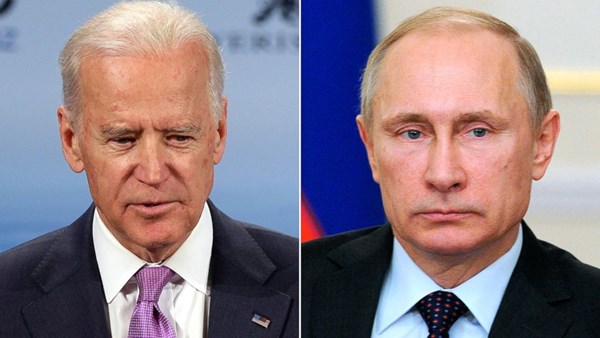Biden brings potential new sanctions to meeting with Putin
U.S. President Joe Biden came to Geneva for a summit with Russian President Vladimir Putin not empty-handed.
In February, he promised to end Donald Trump's policy of concessions and in March called Putin a "murderer." Before the summit, Biden refrained from making sharp statements and instead described Putin as a "smart" and worthy rival.
After the NATO summit in Brussels on Monday, Biden said he intended to convince Putin that it was in his best interest to behave in a way, that he considered, appropriate for the head of a major state.
At least three packages of sanctions will help Biden to convince Putin. They are either ready or being worked out by the Washington administration for several months.
First, the United States may introduce a second round of measures for violating the Chemical and Biological Weapons Control Act of 1991 in connection with the poisoning of Russian opposition politician Alexei Navalny.
On March 4, the first round of sanctions was imposed on Russian officials, including the deputy head of the Kremlin administration Sergey Kirienko, the head of the FSB Alexander Bortnikov, and the Prosecutor General Igor Krasnov. In addition, 14 companies and organizations involved in the development of weapons of mass destruction, according to American data, were blacklisted.
The second round was to be introduced on June 4, 90 days after the first round. But the Biden administration stopped the sanctions machine, apparently waiting for the Geneva meeting.
In addition, the possibility of expanding sanctions against the Russian debt market is being worked out. Since 2019, U.S. investors are already prohibited from buying foreign currency bonds of the Russian government at initial public offerings, and from April 2021 in rubles.
Depending on Russia's behavior, the U.S. may also prohibit its financial institutions from participating in the secondary market of debt securities issued by Russian state banks, sources previously told Bloomberg.
If Moscow decides to go down the path of escalation, then there are additional measures in reserve. One is to prohibit U.S. investors from trading any ruble debt for a certain period after a placement (e.g. 90 days or more), one Bloomberg source said.
Finally, the sanctions against Nord Stream 2 have not been lifted.
While the U.S. has refrained from imposing sanctions on Gazprom's 100 percent subsidiary, Nord Stream 2 AG, the possibility of sanctions remains, German Foreign Minister Heiko Maas said on Tuesday.
He reminded that there is a broad coalition of Republicans and Democrats in Congress who oppose the project, although negotiations with the United States give hope for a deal.
The essence of the deal is that Russia continues to pump gas through Ukraine after the expiration of the current contract for another 10 years.
On June 7, the U.S. Secretary of State, Antony Blinken, said that the U.S. retains the right to reconsider its decision not to impose sanctions against Nord Stream 2 AG. "This exception (from the sanctions) can be withdrawn," he said.
Publicly, neither Moscow nor Washington promise a "breakthrough", counting only on small progress. In particular, Ambassadors Anatoly Antonov and John Sullivan may return to their seats, Assistant President Yuri Ushakov said on Tuesday.
A more significant result would be the intensification of expert discussion both on strategic stability and cybersecurity, and on measures of military restraint between Russia and NATO, said Igor Istomin, an expert at the Valdai Club.
"Progress in these areas would reduce the risks of uncontrolled aggravation, which are now underestimated. The expectations also include the achievement of a moratorium on the deployment of medium- and shorter-range missiles in Europe, as well as discussion of informal red lines in the Ukrainian conflict (the latter are unlikely to be announced, even if the parties find mutual understanding)," he notes.
